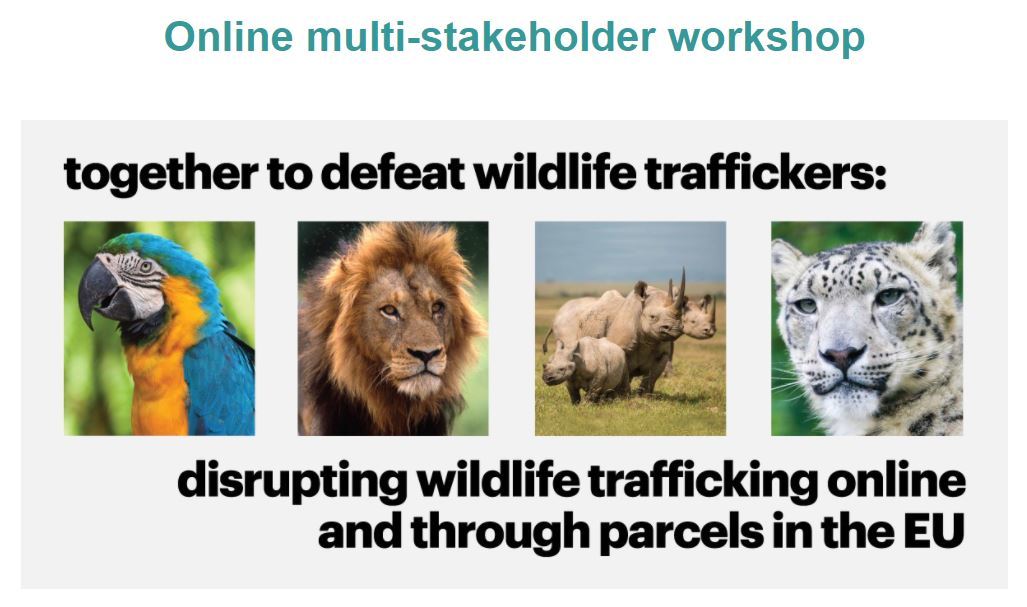Disrupting Wildlife Cybercrime – Global
Wildlife crime is a matter of supply and demandtogether to defeat online wildlife traffickers
together to defeat online wildlife traffickers

On 3-4 May 2021, IFAW co-organized a webinar “Together to defeat wildlife traffickers: disrupting wildlife trafficking online and through parcels in the EU” bringing together over 140 participants from various sectors to discuss the issue and come up with recommendations.
The internet has transformed the global economy, and the illegal wildlife trade has changed with it. Of the many threats to our planet’s wildlife, the illegal trade of live animals and their body parts is one of the most inhumane. The growth of the internet has also enabled wildlife traffickers to move online and has facilitated access to a vast international marketplace, open all hours, where wildlife cybercriminals exploit the anonymity afforded to them.
In the EU alone, enforcement authorities report about 6,000 wildlife seizure records every year. Between 2014 and 2018, almost a third of those seizures were related to post or courier services.
With this and many more figures, data, and information in mind, last week IFAW, WWF, TRAFFIC, INTERPOL, and the Belgian customs organized an online multi-stakeholder workshop funded by the European Union’s Internal Security Fund in the context of the EU Wildlife Cybercrime Project.
The participants, coming from EU law enforcement authorities, CITES Management Authorities, online platforms, postal and courier companies, policymakers, international and EU agencies and NGOs, came together during two half-days to discuss critical trends and emerging issues, the roles of the various stakeholders in disrupting wildlife crime linked to the internet and parcel delivery and policy opportunities.
We convened the different sectors in two breakout sessions where roles, challenges, and recommendations were debated, discussed, and tweaked based on the pre-existing information provided and experiences from the participants. Coupled with the engagement from platforms, enforcers, couriers, and the support from Academia and NGOs, European policies such as the EU Wildlife Trafficking Action Plan, the EU Strategy on Organised Crime, and the E-Commerce Directive must be developed cohesively, along with the political will from the Member States to disrupt wildlife trafficking.
We hope this meeting will help to reinforce ongoing initiatives but also grow synergies among the different sectors, illuminating best practices while also acknowledging the challenges that remain and the need to prioritize these types of crimes.
We will work in the future to continue supporting cross-sector initiatives to detect and disrupt wildlife cybercrime and to cooperate on this matter.
Eleonora Panella
Senior Campaigner
Related content
Our work can’t get done without you. Please give what you can to help animals thrive.